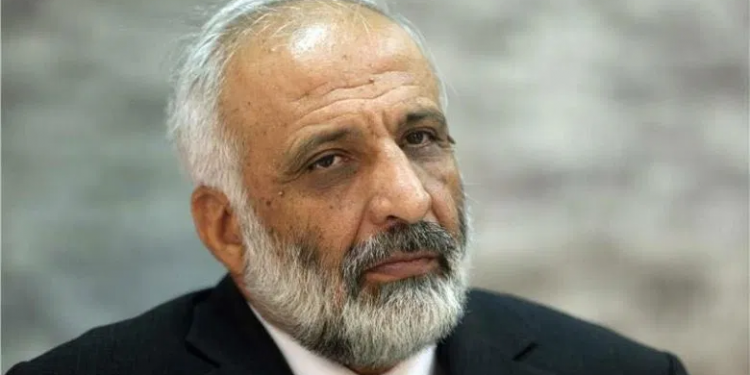The peace negotiating team representing the Islamic Republic of Afghanistan in the talks with the Taliban on Wednesday said that the republic’s team will focus their efforts to end the war and protect the system in the second round of the peace negotiation talks, which will begin on January 5.
The republic’s chief negotiator Masoom Stanekzai said that in the second round of the talks efforts will be focused on a permanent end to the war– not a gradual end to the conflict in Afghanistan.
“First there is the issue of security which has a major significance for the Afghan people—the talks about security involve ceasefire and the protection of the people and highways and also the issue of drugs,” said Masoom Stanekzai, the republic’s chief negotiator while speaking at an event organized by the Afghan Institute of Strategic Studies.
The republic team has pledged to protect all rights of the Afghan people and the democratic system.
“We need to defend it in the talks ahead of us, the system which exists in Afghanistan is a system which has been recognized everywhere,” said Mohammad Natiqi, a member of the republic’s team.
“The talks are led by the two sides of the negotiations, no foreign country is there to try use their leverage in the talks,” said Ghulam Farooq Majroh, a member of the republic team.
Nevertheless, Stanekzai criticized the delay in forming the general assembly of the High Council of National Reconciliation.
“Still part of the general assembly of the council has not been finalized, people want greater presence there,” said Stanekzai.
Meanwhile, NATO Secretary General Jens Stoltenberg on Tuesday in an interview with the German press agency DPA mentioned Afghanistan’s “fragile peace process,” and said there is no “guarantee of success.”
But the ongoing talks in Doha between the Afghan government and the Taliban are the “only path to peace,” and NATO strongly supports those efforts, Stoltenberg said.
On the foreign troops’ withdrawal from Afghanistan and the NATO mission in the country, he said: “We will have another meeting in February with the new Biden administration and then make our decisions.”
“Whatever we decide, there is a risk. If we decide to leave, the risk is that we will lose the gains we have made in fighting international terrorism to prevent Afghanistan from becoming a safe haven. If we stay, of course there is the risk that we will see increased fighting, violence, and that we will remain engaged in a long-term military conflict in Afghanistan,” he said.
In addition to this, some clerics have called on the Afghan government and the Taliban to agree on a deal and ceasefire.
“For God’s sake, stop the war,” said a religious scholar, Gul Ahmad Sediqqi.
“Put aside your interests in the talks, agree on a peace deal so that the people can live in peace,” said Mufti Mohammad Jaffar, a cleric.
The second round of talks between the Islamic republic of Afghanistan and the Taliban will start on January 5 in Doha.
Stanekzai said that it is very important to bring the fighters back to a normal life in the country’s villages, and if this is not managed properly Afghanistan will not achieve stability.













